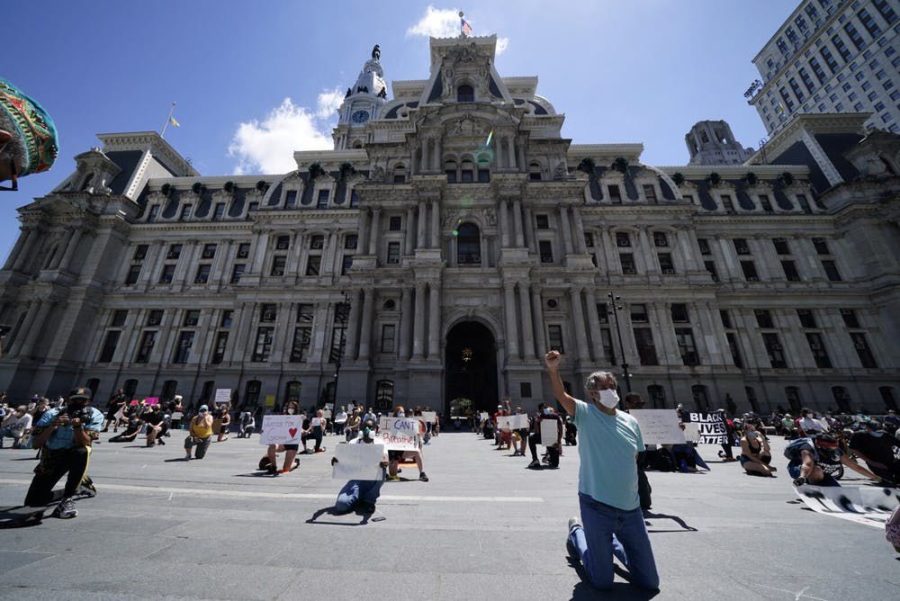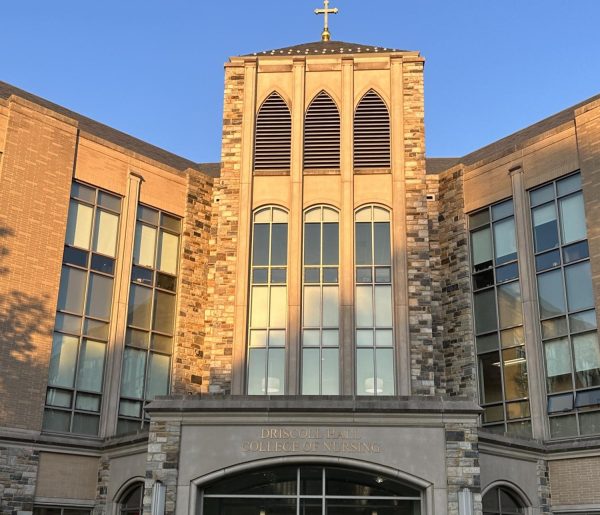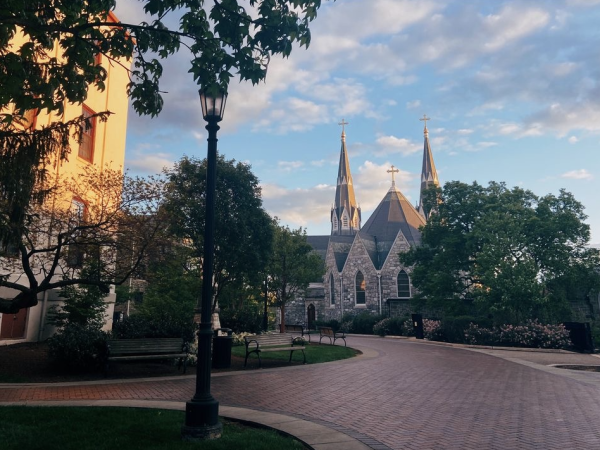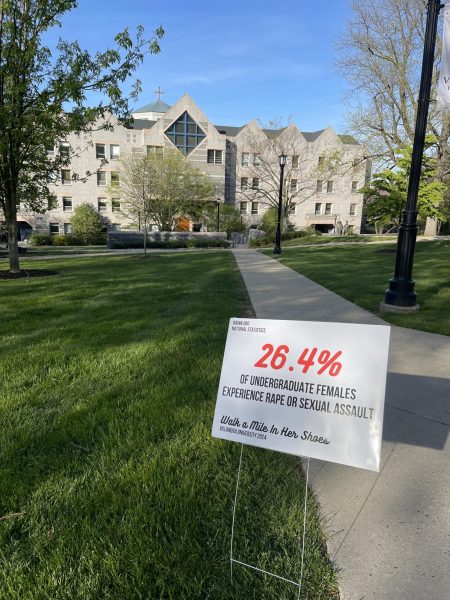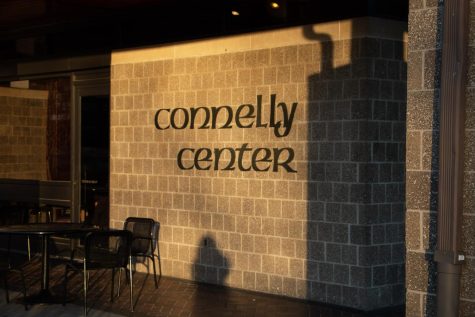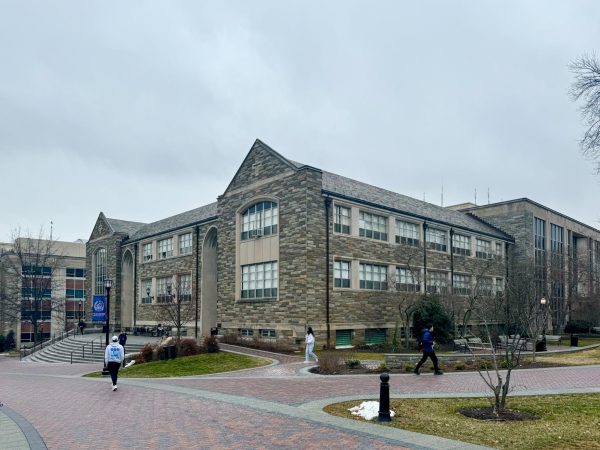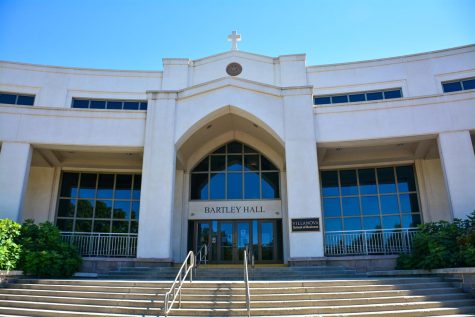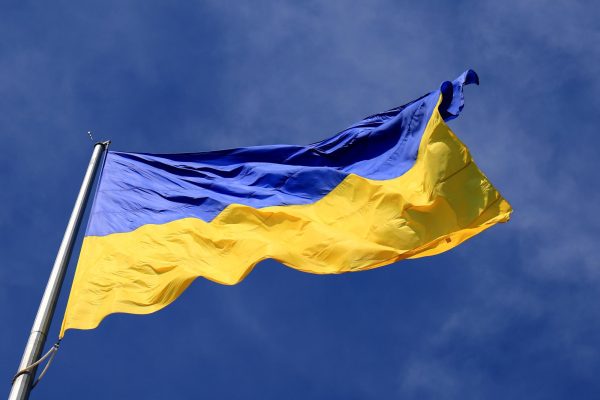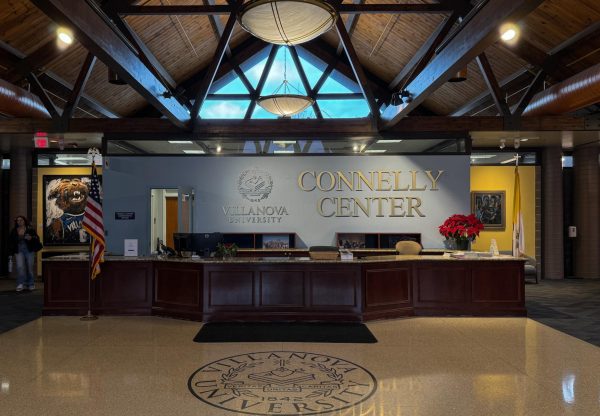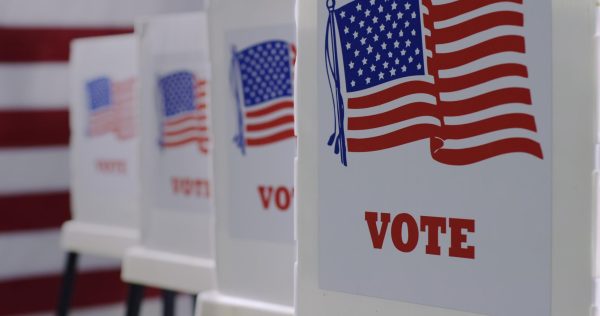Activists March Through Philadelphia Protesting the Murder of George Floyd
Courtesy of Chase Sutton / The Daily Pennsylvanian
A chemical spill in the river worried residents, as reports conflicted on whether the water was drinkable or not.
May 31, 2020
On Saturday, along with hundreds of other protests across the nation, thousands of demonstrators took to the streets of Philadelphia to protest the recent death of George Floyd, an African American man in Minneapolis, who died after a police officer knelt on his neck for more than eight minutes. Floyd died on Monday, May 25, and the officer, Derek Chauvin, who knelt on Floyd’s neck for the eight minutes and 46 seconds, has since been charged with manslaughter and third-degree murder.
Philadelphia Mayor Jim Kenney had vowed on Friday that police would treat protestors with respect, and he said he was hopeful the city would avoid the destruction that has been seen in other cities, like Minneapolis, Atlanta, and Miami. Although Kenney made this promise, nearly 24 hours later, activists were met with tear gas and pepper spray, hours into the demonstration, shortly after breaking into police vehicles.
The Philadelphia protests began at City Hall’s Dilworth Park around noon, when hundreds gathered and knelt in rows, while socially distanced, in honor of Floyd. The crowd grew quickly as the protestors marched from the park to the Philadelphia Museum of Art. They chanted, “No Justice, no peace,” and “Black Lives Matter.”
“I arrived at the Art Museum around 2:45 p.m., and my heart swelled with hope and passion,” said Amira Martin ’21, who attended the Philadelphia demonstration. “To see so many people who looked like me, and many others who didn’t, fill the famous Rocky steps and along the Parkway…It really shows that unity is possible. I saw groups carrying water, first aid kits and other essential necessities for other protestors. Everywhere I turned, I saw support. I saw that Black Lives truly mattered in that moment to the people that showed up.”
The protest was organized by the Philadelphia chapter of the national Black Lives Matter movement. #BlackLivesMatter began after the white police officer, George Zimmerman, who fatally shot Trayvon Martin was acquitted in 2013.
Later in the afternoon, demonstrators gathered around the statue of the late Philadelphia Mayor and Police Commissioner Frank Rizzo, located across from City Hall. Groups tried to bring the statue down, and after an hour, police intervened and began guarding the statue with a blockade. The Rizzo statue is now vandalized with red and white spray paint.
“I saw doctors dressed in their scrubs, with signs saying, ‘White coats for Black lives,’ and let’s not forget that we’re still in the middle of a pandemic,” Martin said. “For the people that walked with me, we used our voices. But as we walked down, the instigators and the people committing vandalism didn’t look like me. They didn’t share my anger and my passion. From my position, the true protestors were a part of the peaceful demonstrations, but our fight should not be damaged by the violent events and destruction that took place afterwards.”
Nationwide protests took place all day Saturday, from Raleigh, North Carolina, to Tulsa, Oklahoma, to Fargo, North Dakota, to San Jose, California. Nearly 50 trash fires were set in Los Angeles, protester arrests were made in Cincinnati, and crowds gathered in Detroit, New York City and in front of the White House.
Peaceful protests began in Minneapolis on Tuesday, shortly after news broke of Floyd’s death under police custody on Monday night. These peaceful protests escalated on Wednesday, when activists were met with tear gas and rubber bullets from police forces. After four nights of violent protests in Minneapolis, Minnesota Governor Tim Waltz called in the National Guard in preparation of a fifth night of protests.
As demonstrators began to disperse from downtown Philadelphia around 5:30 p.m. on Saturday evening, four cars, two of which were police vehicles, were set on fire in front of City Hall. Center City stores along Chestnut and Walnut streets were also looted and vandalized, including the Starbucks Coffee in Dilworth Park that was set on fire in front of City Hall.
Mayor Kenney implemented a mandatory city-wide curfew that became effective at 8 p.m. and would last through Sunday morning at 6 a.m. Only workers with essential duties were to be permitted outdoors.
By 8 p.m., at least nine fires had been set, and at that point, four were police vehicle fires. By midnight, most looting had ceased, though reports were made of some isolated incidents occurring throughout the night.
Philadelphia Police Commissioner Danielle Outlaw confirmed that at least 13 police officers were injured throughout the Saturday demonstrations. Seven of those suffered chemical burns to their faces, two had head injuries and four had injured limbs.
As of noon on Sunday, May 31, Philadelphia police arrested 138 people for curfew violations, issued 11 Code Violation Notices, arrested 48 for looting or burglary, arrested three for firearm violations and arrested four people for assault on police. Many Philadelphians spent Sunday morning cleaning up debris, while others have continued to loot stores in broad daylight.
Kenney said that many of those arrested on Saturday night were from out of state, calling them “anarchists” and “right-wingers,” and he praised restraint shown by the Philadelphia police force.
Because of the violent turn of the demonstrations and looting that had resulted, most of Center City was placed on lockdown on Sunday and the Benjamin Franklin Bridge was closed. Kenney and Outlaw told NBC10 that they surveyed the area, and together put closures in place for vehicle traffic on all streets, river-to-river, from Vine to South streets.
Outlaw said that the city requested support from the Pennsylvania National Guard and entered into mutual aid agreements with surrounding police departments in the region. Unlike Saturday evening, police on Sunday were prepared to “set the tone early,” she said.
Outlaw is the first African American and first woman police commissioner for the city of Philadelphia. She expressed support for those outraged by racial disparities nationwide, while denouncing the violence and theft. Outlaw praised the multiracial peaceful demonstrations that had taken place on Saturday, but mentioned that those who used violence on Saturday evening and into Sunday, “frankly don’t look like me.”
“To hold up a Black Lives Matter sign and then use the destruction that they were committing in the name of Black Lives Matter is not only a slap in the face, but it’s completely a setback for everything that’s been accomplished by those who have been working to improve civil rights over the many a many a decades, and those who are working internally to do our parts to fix the issues within the criminal justice system,” Outlaw said.
The curfew took effect again at 6 p.m. Sunday evening and will last until 6 a.m. on Monday morning. Kenney has emphasized that only those with essential jobs or those in need of medical attention or police assistance should leave their homes.

